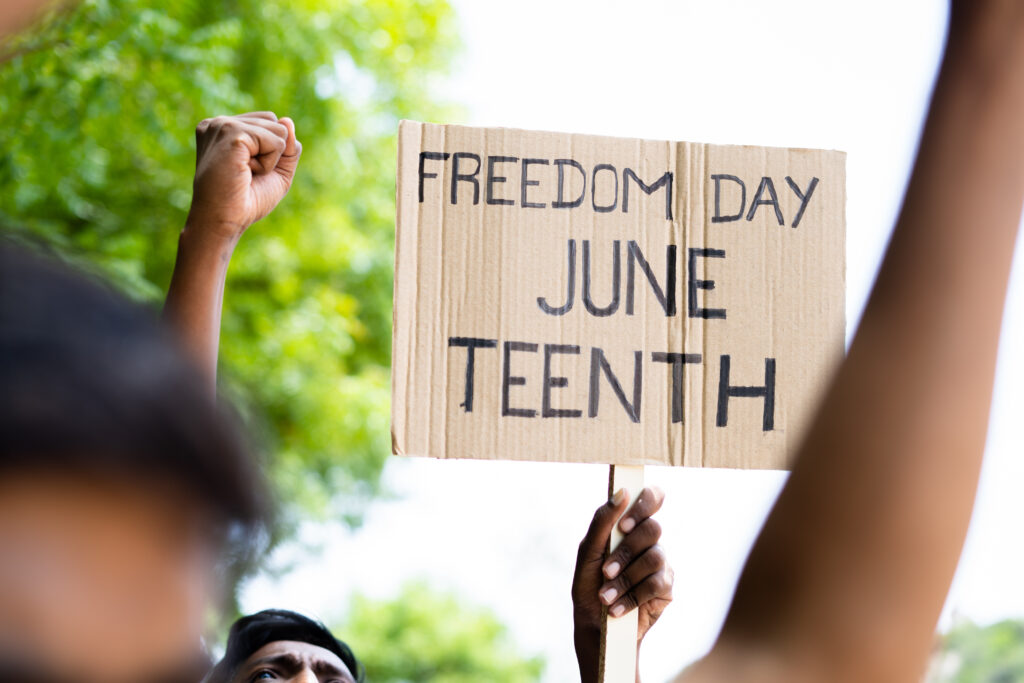This week, on June 19th, we celebrate Juneteenth. Juneteenth commemorates a pivotal moment in American history—the end of slavery in the United States. This day marks the arrival of Union troops in Galveston, Texas, in 1865, bringing the news of freedom to the last remaining enslaved African Americans, a full two and a half years after President Abraham Lincoln signed the Emancipation Proclamation.
The Emancipation Proclamation, issued on January 1, 1863, declared that all enslaved people in Confederate states were to be set free. However, this executive order had little immediate effect in Texas, one of the most remote of the slave states, where enforcement was limited. It wasn’t until General Gordon Granger and his Union soldiers arrived in Galveston on June 19, 1865, that the order was effectively enforced, and approximately 250,000 enslaved people in Texas learned of their freedom.
Granger’s General Order No. 3 stated, “The people of Texas are informed that, in accordance with a proclamation from the Executive of the United States, all slaves are free.” This announcement not only freed those who were still enslaved but also underscored the end of the Civil War and the federal commitment to abolition.
The first Juneteenth celebrations began in Texas three years after that final proclamation, as formerly enslaved people commemorated their newfound freedom with festive gatherings, including barbecues, music, prayer services, and cultural events. Over the years, these celebrations spread beyond Texas, particularly during the Great Migration, when African Americans moved to other parts of the country in search of better opportunities and to escape the oppressive conditions of the Jim Crow South.
Despite its deep roots in African American history, Juneteenth remained relatively obscure on the national stage for many years. However, its significance has grown in recent decades, with more states recognizing the day and incorporating it into educational curricula. The push for broader recognition gained substantial momentum more recently, leading to President Joe Biden officially recognizing it as a federal holiday in 2021.
Today, Juneteenth serves as a powerful reminder of the ongoing journey toward equality and justice. It is a day of reflection, education, and activism, highlighting both the progress made and the work that still needs to be done to address systemic racism and inequality. Communities across the country observe Juneteenth with a variety of events, including parades, cultural festivals, historical reenactments, and discussions on civil rights issues.
As Juneteenth continues to gain prominence, it invites all Americans to engage in a deeper understanding of the nation’s history and to work collectively towards a more inclusive and equitable future. The holiday stands not only has a commemoration of emancipation, but also as a call to action, encouraging ongoing dialogue and efforts to dismantle the remnants of slavery’s legacy.
In celebrating Juneteenth, we honor the past, acknowledge the present, and commit to a future where freedom and justice are truly accessible to all.



